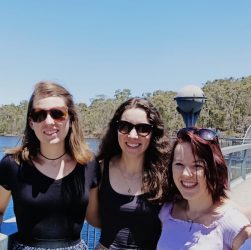I was elated to hear that I had been chosen by the SU International Office to attend a Summer School …


I was elated to hear that I had been chosen by the SU International Office to attend a Summer School …

In December 2017, which was the end of my third year of my bachelor’s degree program in Industrial Engineering, I …

My Polytechnique winter internship experience By Melissa Crouch (MEng, Civil) Pre-departure (April – December 2019) My pre-departure experience started with …